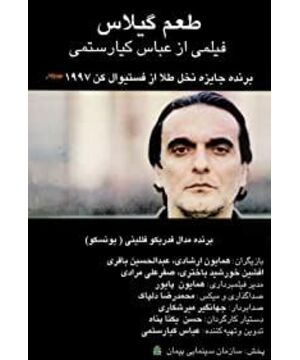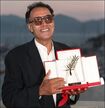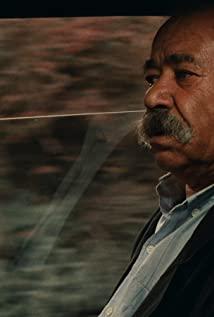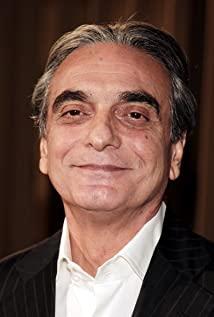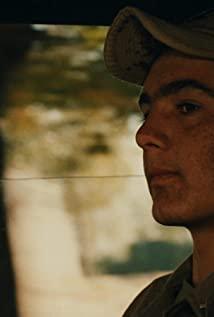Over the years, the grave has understood the dead better than the living. In countless sleepless nights, buried under heavy headstones, buried in the cold and damp earth, listening to the intertwined whispers of souls. In 1961, Hemingway smashed his head with a long-barreled shotgun, and the death knell sounded for him; Zweig and his wife died in Brazil during World War II, "out of voluntary and rational thinking" both sedated; Kawabata Kang Cheng was the only person who witnessed Yukio Mishima committing suicide by incision. He also committed suicide with a gas pipe without leaving any suicide note; Van Gogh was poor all his life. The Rhine attempted suicide, had a nervous breakdown, and died in a mental hospital. Almost all of Russia's greatest poets ended their lives by suicide: Mayakovsky, Tsvetayeva, Yesenin, Blok.
Camus said, "There is only one really serious philosophical problem: suicide." People are thrown into this world to experience all kinds of hardships from birth. Some people taste the sweetness of life like summer flowers, and some people only see the pain that will never end. They believe that God has deprived them of the right to choose life, but it can no longer deprive them of the choice to end their lives, and to live any longer is tantamount to torture. In "Gloomy Sunday", the enchanting piano concerto accompanies many people to the end of their lives, beckoning those who are dying. In fact, this is just the first moving piece of music. The dying person hears the breath of death, and the person who falls in love can hear the whispers of their lovers. Many people just need a reason, even if it is trivial, enough to support them to complete actions that many people think are incomprehensible.
In "The Sea Inside," Ramon Sampedro spent 26 years of his life fighting for the right to die. He was quadriplegic and shrunken, and he was lying in bed on weekdays, only his head could be turned slightly. He is not in a wheelchair, accepting a wheelchair is like a bird accepting crumbs, insignificant but without dignity.
Raymond often thinks back to that day, and the day that changed his life lingers in the hidden places of memory. He stood on the sand, the sand digging between his toes, the sea slumbering peacefully, full of danger. The sea breeze was blowing his hair, and there was his reflection on the rocks. He touched his neck, and he could see the girl on the beach not far away. The camera lowered his head from the sky and looked down at the emerald green water. When his body was flying in mid-air, he realized that the tide was low, and then plunged into the shallow water beach and broke his neck. Life and death are just an instant, the sea gave him life and took it away.
Death, but a part of life, arrives eventually. When people asked Raymond why he wanted to die, he always answered briefly, "I don't think it's worth living. While this may offend other quadriplegics, he's not trying to judge anyone, he's just talking about his life. He has been puzzled, death is the place where everyone will go, why he said that people are so frightened, as if it is contagious. As for death, he never hesitated.
In the morning, if there is wind and the windows are open, you can smell the sea. Occasionally, a few birds frolic on the windowsill, and the rest of the time the scenery stares at him motionless. His family took care of him meticulously, but this kind of life means nothing to him, he can't even touch the beautiful female lawyer Julia three feet away, a distance that can be ignored by others is a delusion to him, a dream. Everyone could see that he was fascinated by the female lawyer, whose presence slowed down the time in the house, but love was not the point, it was his refusal to love. That night, he heard Julia fainting behind him, but couldn't get out of bed and pick her up. At that moment, he screamed Manola's name over and over again in horror. Even in the face of death, he has never been so panicked, he has never been afraid of death, he is just afraid of living helplessly, unable to move in this hell all his life.
Death may be his only dance.
Not only Raymond Sampedro, but able-bodied people are also pursuing death, because it is not physical disability that takes away their will to live, but spiritual despair.
Away from the beaches of Spain, in the mud and sand of Iran, suicide is sinful because of the Islamic beliefs. So, in "The Taste Of Cherry," Mr. Buddy digs a hole in a hillside under a cherry tree and drives around looking for someone to bury him. He met workers, people collecting plastic bags, soldiers walking from Daraban, workers mixing cement, priest trainees who were still studying in seminary, and staff at the museum. Buddy chatted with them cautiously, repeating his appeal. Very simple, all they had to do was come under the tree the next morning to see if he was still awake, and if he didn't wake up, bury him with a shovel. No more, no less, twenty shovels are enough. For every 10,000 yuan, they can get 200,000 yuan, even in the capital Tehran, this is a huge windfall.
People ramble about their unsatisfactory life, and without exception, they all live in poverty and have meager income. But hearing Buddy's request, people still used their own ways to persuade Buddy not to give up his life. Buddy just looked forward without saying a word, and there was an unforgettable sadness in his deep eye sockets. After that, he calmly said in a slightly trembling tone that one person does not understand another person's pain, and suicide is not because of not cherishing life, but because it is too painful for him to live.
However, for Buddy, death is not as reckless as Raymond, and there are also contradictions and struggles. Raymond didn't want to recall the good old days, the joys of traveling the world as a sailor, which to him had been drowned in the shallows, gone one by one. While chatting with the soldiers, Buddy also happily recalled the years of his military service. At that time, he had friends and everything was very happy. After breakfast, I polished my shoes and waited for the major to call me, "One, two, three, four..." They counted one after another. Apart from these rarely heard Buddy mention his past, or the reasons for suicide, he usually does not make excuses, because no one will understand. In the end, the old man of the museum, Baghoken, finally helped him. After listening to Bagho’s experience of suicide along the way, Buddy suddenly turned the car and flew back to the museum, as if he had lost something valuable and was out of breath. In fact, he just hoped that when Bagho went to bury him in the morning, he would hit him with a few stones to make sure he really didn't wake up. Knock a few more times, knock a few more times.
2. The deep sea under the cherry tree
What makes cherry trees bloom with white flowers? Although the flowers are not big, they are very dense and swaying in clusters. Cherry trees are neither drought nor flood tolerant, and if there is too much water, the tree will suffocate and die. The same is true of life, which requires careful care and a firm heart.
The debt-ridden man in the phone booth was deadlocked with the caller. When Buddy asked him if he was short of money, he resolutely refused help, as if money was just a trivial matter and he lived well. And the out-of-towner who collected plastic bags and sold them to the factory didn’t even know what the words on the clothes meant. He also refused windfall money and didn’t even ask what kind of job he was doing. He said that he would only collect plastic bags. . There was no self-deprecating meaning between the words, but he was very satisfied with the status quo. Buddy asked the cement mixer who was guarding the construction site alone, is it not boring here alone? Without thinking, he replied that he was used to it.
Here, you will find that everyone is not rich, but very happy. As a child, director Abbas always felt that the reason why adults are like this is that they "succumbed to power and refused to recognize the social reality of suffering". It is possible that they will not be able to reveal the truth the next day, and they are still singing happily, which is an expression of escapism. The world in his eyes was like the reflection cast on the rolling sand in a movie, nothingness, far away, no end, how hopeless it was all! However, when he grows up, he gradually becomes an adult, and even his thoughts will look for positive and pleasant things from the helpless reality.
When Mr. Buddy's car, a wheel fell off the dirt road, he was still hesitating how to lift the car out, and the singing farmers were like green elves emerging from the soil, all gathered in the blink of an eye. next to the car. Singing, talking to him with a simple smile, and shouting slogans, he lifted the car up at once. Mr. Buddy didn't seem to have regained his senses, but just said thank you blankly. Life isn't full of miracles, but it's not that bad either.
The picture of the film has always been pale, with old and undersaturated colors. The sun was very dazzling outside the car, and it was so pale that it sprinkled every corner, so that no shadow could be seen. The branches of the cherry tree stretched out in twos and threes, and there were no leaves on it. There was always a flock of crows flying around the tree, shouting "ah, ah, ah". There were a few clouds hanging in the sky, so dry that they were about to fall. This is where Buddy wishes to die, desolate and undisturbed.
I like the fact that at the beginning of the movie there is no picture, but someone is already telling it. The beginning of "Sleep in the Deep" is to imagine a place you like, and since you can't control it, let it come and go freely. Asnas Beach. The moist air slowly dissolves, and the colors are full and blurry. Like a call.
In the face of Raymond's choice, some people in the society support and some people oppose it. Most of the opponents believe that life is sacred and does not belong to oneself, and suicide is also murder. The same high paraplegic priest, self-proclaimed missionary of God, refers to the high-spirited uninvited. He insists that life is given by God and cannot be given up easily, and also accuses Raymond's family of not giving him enough love. Everyone has their own views on life. Manola's reaction was unsurprisingly angry, she tried to stay calm and said, I'm not sure who's right and who's wrong, but you really have a lot of mouths! In fact, the whole family loves Raymond very much. As a farmer's brother, he reacted the most to his suicide. He always cursed Raymond's ruthlessness to himself, and rambled about how much his family loved him; as his sister-in-law, Manola silently took care of the family. He has to be in order and try to make Raymond as comfortable as possible. If you ask her what she thinks of this matter, she will only be silent for a while, saying bitterly and helplessly that it is his own choice; Raymond has always regarded his nephew Javier as his child. , taught him all he had, and Javier also regarded him as his friend and was willing to help him do many things. When the car finally picked up Raymond, Javier hesitated, did not say goodbye, just closed the door gently and ran after the car for a long time.
Those who blamed Raymond imagined him to be selfish and unethical. But Raymond is a warm and sincere person, and even if he can't move, he is still charming. He is very kind, even after the blow, he still patiently comforts Rosa, who is crying; he is very humorous and often self-deprecating. When we first met, he would say forgive me for not being able to shake hands with you, and in the late night when it was hard to sleep, he joked that his legs were too large Tickle kept him awake; he always smiled, the only way he could repay others, and depended on other people's lives to teach him to smile, not to cry in vain. The father's old body was hunched over, and others either supported or sternly opposed to his son's single-minded begging for death, but he was the only one who remained silent. In the end, the image of him guarding the bed where Raymond once lay was impressive. The room was extremely deserted, the rolled up quilt buried his head in the shadow of the folds, and there were traces of lying on the bed, as if there was still residual warmth. Father sat on the edge of the bed with his head lowered. There is nothing more grievous than the loss of a son, that his son wants to die himself.
In the end, the court again denied Raymond his right to die, and he couldn't wait for this endless sentence. With the help of a friend, he drank water spiked with potassium hydride. He said his final words to the camera, "What is dignity? At least not a worthwhile life, I would rather at least die with dignity." Raymond was tired of the burnout of the system, the hype and the endless accusations. Life is supposed to be a right, not an obligation. After 28 years, 4 months and a few days of pain, Raymond, who should have died in that drowning, finally got his wish. Watching him die in pain by being burned by potassium hydride is an extremely cruel thing, but it makes people unable to look away, deeply feeling the helplessness of life, the coexistence of tenacity and fragility.
People say that when you are drowning, if you inhale sea water at once, you will die without pain. Back to the light, the moments of a lifetime reappear, the past that Raymond refused to look back. No one ever pulled him out of the water again this time, so he could sleep peacefully.
3. I'm going to fly away, you are my wings
"My love, I'm going to fly away. I'm in a friend's garden, come on.
Before the happy days come, I have to go through hardships, come on.
We We don't know each other very well. You leave and stay, and I'm your friend. No
matter what, I'm your friend."
Abbas believes that life and experience brought him the conclusion: "Although we are pessimists, we cannot live without hope".
It's not so much that Buddy was looking for death as he was listening to the lives of others. In 1960, Baghol said he also considered suicide, and chose a cherry tree to hang himself. Suddenly he touched the soft berries in his hand and stuffed them into his mouth. The taste of the cherries was so sweet that he ate bite after bite, completely forgetting about suicide. Later, the sun rose, and the spectacular scenery was so beautiful that one almost fainted. There will be problems when people are alive. When they are sick, they go to the doctor. They can't always think of dying to solve them. If you lose hope, ask yourself first, have you ever seen the sleepy sky in the morning? What about the rosy sunset in the evening? What about the river under the full moon? Have you noticed the four seasons, and have you seen different fruits in each season? The sick Turk told the doctor which part of his body he touched with his finger and that part of his body hurt and felt very ill. After the doctor checked, he told him that he just had a broken finger. So, you have to look at life from a different angle, and naturally there will be a different situation.
Mr. Buddy was sitting in the park of the museum when a small black cat slipped past his feet. The plane slid past, pulling out a slender white jet like toothpaste. Below the hillside was a school. Children were running and playing around the playground. The setting sun accompanied the construction of Tehran, which slowly melted into a hazy rosy red. No matter what, he came to the cherry tree late at night, and the light illuminated the cherry tree gradually. Lying in the pit, he saw the bright full moon, showing his face in the misty dark clouds, the thunder burst, and Mr. Buddy closed his eyes between the lightning.
The ending of the film is meaningful. As Abbas has always said, he does not like to control the audience, but wants the audience to experience it for themselves. In the morning, before the damp breath dissipated in the air, the reddish-brown land turned into a tender green, and the audience realized that the director had deliberately removed the green in the picture in the previous shooting. The cherry tree is dotted with small white flowers. Mr. Buddy chatted with the filming crew with a cigarette in his mouth, and the actor who played Abbas told the staff that today was just to collect the sound, not to shoot. The soldiers in the morning exercise were sitting on the side of the road, and some people picked a few flowers and shook them happily. The end credits also changed from red to green at the beginning.
Some people say that Mr. Buddy didn't swallow the sleeping pills, he slept and crawled out again; others said that Mr. Buddy was indeed dead, the film crew finished filming the movie, and the director asked the actors to come out and tell everyone that the movie was not reality. The director didn't say anything about Mr. Buddy's choice, whether he died, or whether the crew had anything to do with the film. This ingenious design gives the film more dimensions. According to Abbas's usual habit, Mr. Buddy just slept in the pit. When he woke up, he saw a film crew, and he went up to chat a few words. The film crew has nothing to do with this movie, they just came to make up. Abbas always likes to find an actor who is very similar to himself to play himself to blur his intentions and create more possibilities.
In "Eternal Sleep in the Deep Sea", although Raymond really died, in the process of his obsession with death, he can still see his love for life and the director's praise for life.
Maria once asked Raymond how he really felt about the sea. He said that he still loves the sea, and when he wants to see the sea, he concentrates and takes a step toward the sea.
The most beautiful scene in the film is the scene of Raymond flying into the sea. It's a hypnotic long shot. The tenor aria from the opera "Turandot" "Nobody's Sleeping Tonight" played on the record player, and the wind blew in from the far sea. Raymond's eyes flashed for a moment, his fingers squirmed, he pushed aside the sheets, quickly turned over and got out of bed, opened the bed blocking the window, backed into the corridor, stepped up his breathing, ran a few steps, and jumped down from the window. The wind started whistling in his ears. He seemed to have grown a pair of huge wings, and he flew vigorously—flying over the flowerbeds in the yard, circling the high and low hillsides, through the canyons, faster than the current, and after leaping over a hill, Straight up, the eyes are full of blue sky. Below is the golden beach. "They told me you were here, and I flew over," he stroked Julia's blond hair, the setting sun chanting softly above their heads. The director expresses Raymond's love for the sea and life with the flight of meditation on the beauty of China. Only those who are full of love for life can see such a dizzying and magnificent landscape.
Raymond wasn't a dying man who lost his will, he lived a busy and active life. He created an opportunity for the quarrelsome grandfather and grandson to get along, and told his nephew not to disrespect his grandfather, and one day he would regret the hurtful words he said, and he just wanted the earth to engulf him. His cabin became a sanctuary for single mother Reza, listening to her whining and chatter. Sometimes like-minded friends turn this place into a party, toasting.
Julia told Manora before she met Raymond that she could understand Raymond. At that time, everyone thought it was a word of comfort. Later, it became known that Julia had suffered from a recurrent stroke, a terminal illness that could kill Julia at any time, or make her go into a vegetative state in unpredictable fainting after another. She received a letter from Raymond as she lay in the hospital, "Now I know that living in that pain is sometimes worth it, if that's the only way to foresee someone like you. It's worth sharing a cigarette with them. Or, as it is now, expressing feelings, even with ridiculous words. And talking about funny things. I'd rather keep my little world organized until you're up there to cheer me up.…flying over Barcelo Na, reach the sea until you see the horizon, somewhere on the earth, and maybe meet you." He used to feel that he had no right to love, but now he and Julia swore to each other that they would walk the last part of the road together.
Raymond didn't believe in an afterlife, and left empty-handed just like before he was born. But some things cannot be forgotten, and those who love him will not. Death is not sad here, but full of shining vitality. Just like the scenery he saw the last time he was on the road: a woman sitting on a haystack, a mother teaching her children, a busy farmer, a puppy having sex, a couple holding hands, and a spinning windmill, first one, gradually revealing the whole. The landscape, followed by a large group dancing together in the wind, the vitality of life almost overflowing from the eyes. Who would be so obsessed with death if it wasn't for such an encounter? If you can't stand up and run on the beach, you can't hug your loved ones, you can't kiss your beloved woman, you can't write a moving poem by hand. It is better to sleep in the vast sea forever.
Life is not the pain of moaning, but still smiling in the face of these hardships, and knowing your own direction no matter what you choose. People embrace death in their arms and see the brilliance of life more clearly.
"The sea depths, the depths of the sea
at the end of weightlessness, where dream become a reality
two into one wishes, let a desire to achieve
, you see, I look
like an echo bursts, silent
deeper and deeper, more and Deeper
through blood and flesh, and beyond all
but I've been awake
I've been wishing I was dead."
- Raymond Sampedro
Reprinted please indicate the author: Nine-Tailed Black Cat
http://www. mtime.com/my/LadyInSatin/blog/413093/
View more about Taste of Cherry reviews


